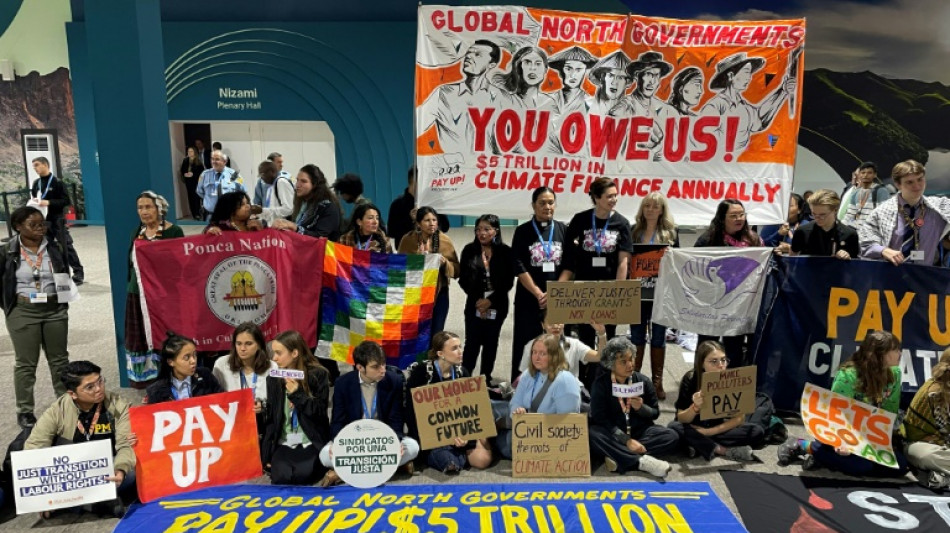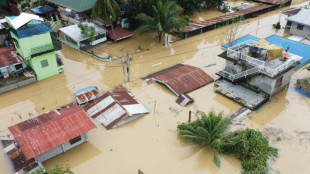

Hopes set on G20 spurring deadlocked UN climate talks
Nations return to deadlocked UN climate talks Monday, with hopes that G20 leaders meeting on the other side of the world can rally support behind a deal for poorer countries.
Halfway through two weeks of bargaining in a cavernous stadium in Azerbaijan, diplomats are no closer to an agreement that will define the success or failure of COP29.
Government ministers taking over the negotiations in Baku have until Friday to break the impasse over how to provide the developing world with the money it needs to tackle global warming.
Pressure is mounting on G20 leaders to throw their weight behind the stalled process when they meet in Brazil for their annual summit.
"A successful outcome at COP29 is still within reach, but it will require leadership and compromise, namely from the G20 countries," UN Secretary-General Antonio Guterres said Sunday in Rio de Janeiro, where he is attending the G20 summit of the world's biggest economies.
"The spotlight is naturally on the G20. They account for 80 percent of global emissions," Guterres said, calling on the group to "lead by example."
- Hosts under pressure -
The conference opened in the shadow of Donald Trump's re-election in the United States, and efforts to shore up support for the global climate fight took another knock when Argentina's delegation withdrew from the summit.
The nearly 200 nations at COP29 are negotiating a new deal to provide developing countries enough money to cut emissions of heat-trapping gases and build resilience against worsening climate shocks.
This will require $1 trillion a year in outside assistance by the end of the decade, according to independent economists commissioned by the United Nations to assess the needs of developing countries excluding China.
Climate-vulnerable nations want a chunk of this paid by developed countries, but donors say they cannot raise that money alone and the private sector must also be involved.
They also want wealthy emerging economies not obligated to pay climate finance -- most notably China -- to share the burden.
The European Union is the biggest contributor to international climate finance but faces political and budget pressure, and could be left exposed should the US refuse to pay up under Trump.
The haggling in Baku has been glacial, but a meeting between Chinese and European officials was seen as a glimmer of hope in an otherwise gloomy week.
The COP29 host, Azerbaijan, lacks diplomatic experience at a time when observers say crucial leadership is needed to steer what some see as the most complex climate negotiations in years.
Azerbaijan's president, Ilham Aliyev, also came under fire for defending fossil fuels, while his fiery remarks about France's colonial history resulted in Paris's climate envoy cancelling her ticket to Baku.
Besides the finance impasse, a fight is also brewing over whether countries at COP29 should recommit to last year's landmark pledge to move the world away from fossil fuels.
A dispute over whether to include this issue on the formal COP29 agenda delayed the opening of the summit itself by several hours on day one.
"We are extremely disappointed" that efforts to cut emissions were little more than a "blank page" at COP29, Veronika Skolasztika Bagi, speaking on behalf of the EU, said Saturday.
T.Gallagher--IP




